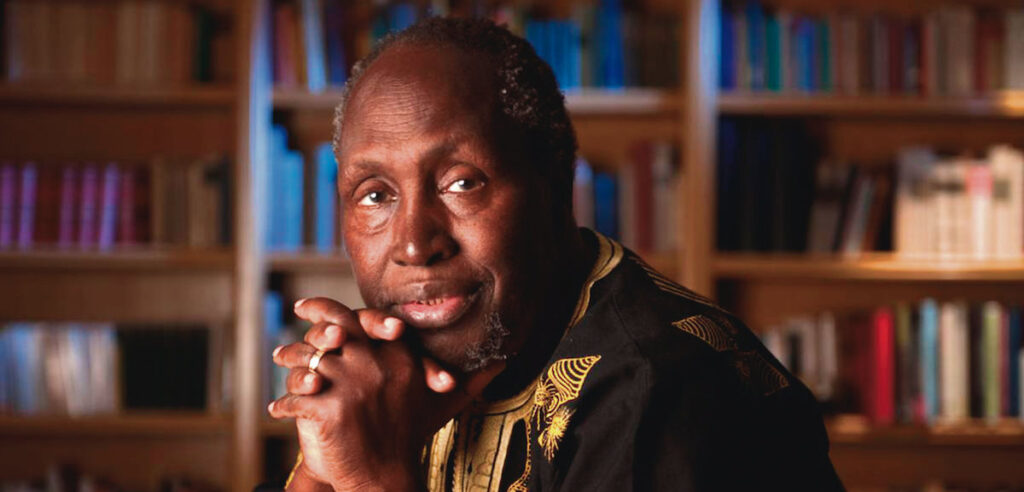Ngugi wa Thiong’o, the renowned Kenyan author and playwright celebrated for his unflinching critiques of colonialism and post-independence corruption, has passed away at the age of 87. Kenya’s President, William Ruto, confirmed the news of his death in the United States, following reports of declining health in recent years.
Ngugi’s teenage years were shaped by the Mau Mau uprising against British colonial rule, a struggle that would greatly influence his writing. His works often challenged not just the colonial order but also the Kenyan elites who inherited its benefits.
In December 1977, Ngugi was arrested and held without charge in a maximum-security prison after peasants and workers performed his politically charged play “Ngaahika Ndeenda” (“I Will Marry When I Want”). Authorities were so outraged by the play’s exposure of social inequality that, according to Ngugi, they dispatched three truckloads of police to demolish the theatre.
Fearing for his life, Ngugi went into exile in 1982 after learning of a plot by then-President Daniel arap Moi’s security forces to arrest and kill him. He continued his literary and academic career abroad, eventually becoming a professor of English and Comparative Literature at the University of California, Irvine.
Ngugi ended his exile in 2004, returning to Kenya after Moi’s departure from power. Despite his experiences, he harbored no grudge, yet he cautioned that the legacy of Moi’s 22-year dictatorship would linger for generations.
President Ruto paid tribute to Ngugi, calling him “a towering giant of Kenyan letters” and praised his unwavering commitment to justice and equality. “He made an indelible impact on how we think about our independence, social justice, and the uses and abuses of power,” Ruto posted on X (formerly Twitter).
Ngugi’s literary contributions include his debut novel, “Weep Not Child,” which recounts the Mau Mau resistance, and “Devil on the Cross,” a novel he famously wrote on toilet paper while imprisoned. In the 1980s, he made a decisive shift from English to writing exclusively in his mother tongue, Gikuyu, as a powerful rejection of colonial influences.
Ngugi wa Thiong’o’s legacy lives on in his writings and the generations of readers and thinkers he inspired.

